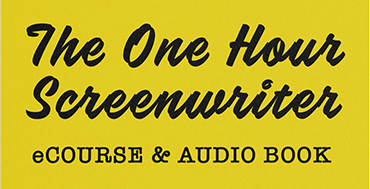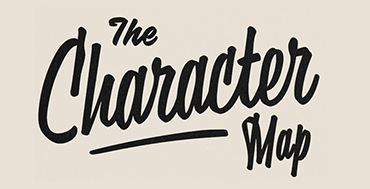Writing Advice Wednesday
 Whether you work in television, film or video games, learning to accept criticism gracefully and incorporating notes effectively is an important part of a writer’s job. Here are the key elements to making the most of the notes and criticism you receive:
Whether you work in television, film or video games, learning to accept criticism gracefully and incorporating notes effectively is an important part of a writer’s job. Here are the key elements to making the most of the notes and criticism you receive:
1. Listen carefully. Control the urge to argue or explain. Be fully present to the critique. Listen to what the other person is saying. It’s impossible to hear notes if you are busy thinking up arguments, justifications, and explanations in response to comments. No response to criticism is immediately necessary.
Let the other person speak freely and without interruption. Write down all the notes or better yet listen attentively and tape the session. Reserve any immediate judgment or comment. Simply take in every word. The more carefully you listen, the more likely you will hear something that, on reflection, will dramatically improve your material. The best response to criticism is to simply thank the person for taking the time to read and consider your work. Adding that you need time to think about and assimilate the notes or comments is an honest and thoughtful way to conclude a notes session.
2. Detach emotionally. Reject the urge to take things personally. Every writer feels vulnerable and exposed when presenting his or her work for critique or comment. You must remember that the issue being considered is your writing and not you, personally. It’s always extremely difficult to separate yourself from your work. But good writing demands just that kind of personal objectivity.
Writers who can leave their tender egos at the door and consider their work dispassionately are the ones most likely to improve. Realize that the notes given, whether graceful or not, are offered to help make your material better. Keep your focus on improving the work and control any personal disappointment, displeasure or desire for unconditional approval.
Look at it this way) You want to tighten storylines, improve characterizations, deepen motivations, create compelling pacing, and add emotional impact to your opening, obstacles and story climax. If you can do all that by listening to criticism, however harsh or difficult, and if you can incorporate those ideas and improvements) it’s worth swallowing hard and leaving your emotions out of it. What if you disagree with the criticism? If you are busy disagreeing it means you aren’t listening. Listen and take careful notes. Suspend all judgment in your notes session.
3. Respect the itch. Resist the urge to take things too literally. People who give notes want to be helpful. It’s simply human nature to want to propose a practical solution or a specific suggestion. Avoid getting hung up on any particular idea that is o!ered. Identifying the underlying problem is far more helpful. When the notes do offer a specific solution “Can’t you give the character a dog?”, look behind that comment and try to determine what problem or issue prompted the question.
What’s the itch? What’s missing? What’s causing a bump in the road? Why does the person think that adding a dog might be useful? Don’t tune out or dismiss any specific solution out of hand; instead, listen and probe for the underlying problem. The person is trying to tell you something deeper isn’t working. What is it? Try to grasp the bigger picture. What’s really at issue here? Dig deep and find the underlying concern.
4. Consider the source. Control the urge to get angry. There is a real art to delivering effective criticism. Not everyone who gives you notes will be able to do so elegantly, efficiently, or gracefully. In most cases, the person doesn’t intend to be cruel or mean spirited; he or she just doesn’t know how to be more effective. How do you handle a critique that seems to be exceptionally difficult or unnecessarily harsh?
Follow the suggestions listed above and then take a deep breath. Look through your all notes and rewrite them for yourself. First, thank yourself for your hard work and dedication. If you got no positive feedback, list whatever you think is working in the script. Some people who give notes believe that if something works it doesn’t merit comment. Make those positive notations for yourself. Reframe all the comments and suggestions in the form of questions. Make these questions specific, direct, and non-judgmental.
What are the underlying issues that seemed the most problematic in the script? List all questions and areas of concern in the order of their importance. Look at the critique as a powerful challenge to improve. End your rewritten notes with a positive statement and the belief you can rise to the challenge effectively. Dig in and make the most of this opportunity.
5. Deliver on expectations. Resist the urge to be artistically arrogant. If a producer has hired you to do a specific job, do it. The art of making a living as a writer requires you to find interesting and elegant solutions to a producer’s practical problems. Make sure you are clear about the producer’s expectations. Ask questions until you are positive you understand what he or she wants from you and from the script or project. It’s your job to deliver on those expectations creatively.
You don’t know better than the person who has financed the project and/or created the opportunity for you to work as a writer. Don’t try to make a project into something it isn’t. Don’t impose your own will on the project. You are there to follow someone else’s lead and implement someone else’s vision. That doesn’t mean you can’t have tremendous creative input. Just be very clear that your input must always be in service to what the producer wants to achieve.
The real art is to do your job with integrity and to find a way to make the producer’s vision your own. And not the other way around!- For example, let’s revisit point 2 above. Let’s say that when you get right down to the bottom of the itch, the producer really does want a dog in the story for very practical financial reasons. It’s your job to find the emotional purpose that a dog would serve.
Your challenge is to weave the dog into the story with real originality, integrity, and truth. At the end of the day, a writer is a problem-solver. Critiques, comment, and notes provide the laundry list of problems to be solved. The fun is to solve those problems in a way that is unexpected but which feels absolutely honest, authentic, and inevitable. The audience should be able to say, “I was really surprised at every turn but, looking back, that is the only way the story could have possibly ended.”



No comment yet, add your voice below!